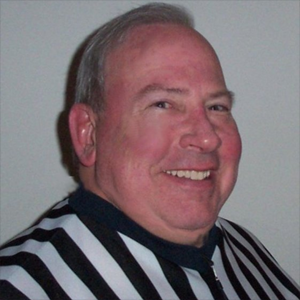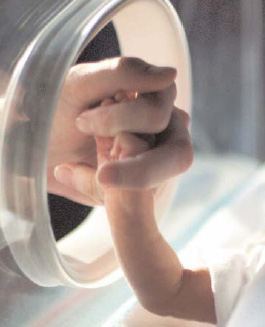
Rndballref
20 Years Experience
Chicago, IL
Male, 60
For twenty years I officiated high school, AAU and park district basketball games, retiring recently. For a few officiating is the focus of their occupation, while for most working as an umpire or basketball referee is an avocation. I started ref'ing to earn beer money during college, but it became a great way to stay connected to the best sports game in the universe. As a spinoff, I wrote a sports-thriller novel loosely based on my referee experiences titled, Advantage Disadvantage
In a local baseball league, they implemented a rule that if a player or parent was tossed from a game, the player was ruled ineligible until the parent umpired a game at his/her level of choice. The league has a handful of letters of apology from parents who tried (quite unsuccessfully) to umpire games.
If I might be so bold as to suggest that you become patched for basketball in your state, attend summer camp to get trained, and work some games next year. You will gain a better understanding of the game, probably help your daughter's game and you will watch her play a little calmer.
1) If the foul is called as a flagrant technical, then 2 shots + the ball,
2) If the foul is a common foul, and then a technical foul also is called, then:
shoot the free throws in the order the fouls occurred. So clear the lanes for a one + one. Then any player shoots the 2 Ts. Then ball at half court.
High school technicals are always 2 free throws, unless they are cancelled out by simultaneous technicals by both teams.
I would immediately throw the player out of the game with a flagrant technical. In Illinois, the player would also be suspended for the next game.
There are five correctible errors in the NFHS rulebook: 1) failure to award a merited FT, 2) awarding an unmerited FT, 3) permitting the wrong player to shoot a FT, 4) attempting a FT at the wrong basket, & 5) Erroneously counting or cancelling a score. Unfortunately in your scenario, the error was in announcing 2 free throws (he never progressed to awarding the erroroneous 2nd freet throw). So, the error is not correctible, the basket counts, and now belongs to the opposing team. Tough break because of bad officiating.
Nurse Practitioner
 As gender roles continue to evolve, are you seeing a rise in the % of male nurses?
As gender roles continue to evolve, are you seeing a rise in the % of male nurses?
Federal Lobbyist
 What was the strangest lobbying request you've ever received?
What was the strangest lobbying request you've ever received?
Programmer
 Why are most developers socially withdrawn?
Why are most developers socially withdrawn?
Based on your question, I want to referee a game probably more than you want to watch one.
I don't know how else to say this...in high school rules, we NEVER award free throws on a player or team control foul. We also NEVER count the basket if a player control foul was called on the shooter.
That is why it does not matter if the team is in the bonus - in any case, free throws are not awarded on a control foul. It is by definition in the rule book - a control foul (team or player) never earns free throws.
Maybe you are confused by the terms - notice I did not say charging fouls instead of control fouls, because charging is just one type of foul committed by the offense. For example, free throws are not awarded for an illegal screen by the offense (as of about five years ago).
In high school rules, a player can retrieve the ball after a "legitimate" shot attempt without hitting anything. For example, you could retrieve an airball shot even though the ball has not been touched by another player. However, f the throw to the backboard is not a shot attempt and a player purposely throws it off the backboard, I would call that travelling - much like tossing the ball forward to yourself and moving down the court.
-OR-
 Login with Facebook
Login with Facebook (max 20 characters - letters, numbers, and underscores only. Note that your username is private, and you have the option to choose an alias when asking questions or hosting a Q&A.)
(A valid e-mail address is required. Your e-mail will not be shared with anyone.)
(min 5 characters)
By checking this box, you acknowledge that you have read and agree to Jobstr.com’s Terms and Privacy Policy.
-OR-
 Register with Facebook
Register with Facebook(Don't worry: you'll be able to choose an alias when asking questions or hosting a Q&A.)